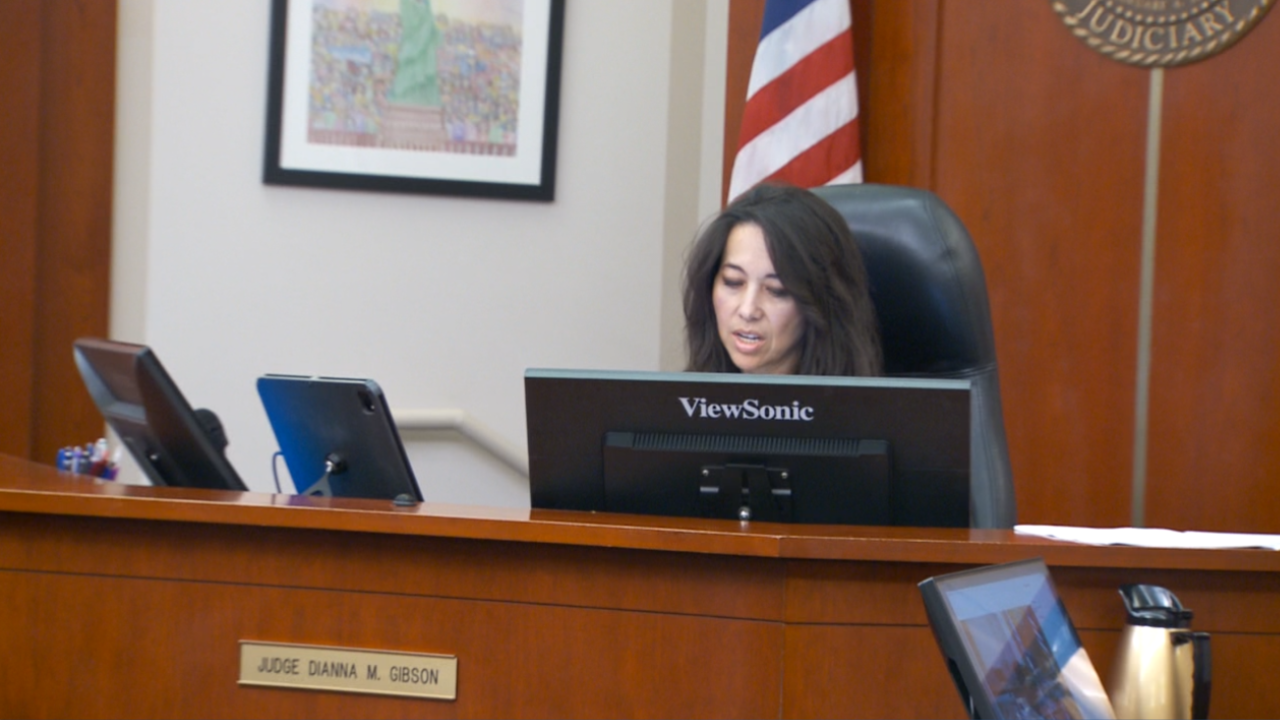SALT LAKE CITY — In the first hearing since her ruling that threw out Utah's congressional redistricting map, 3rd District Court Judge Dianna Gibson asked Lt. Governor Deidre Henderson's office to see if there's any chance deadlines could slide to create new maps.
But as she sat down at the bench on Friday, Judge Gibson made one thing clear.
"This court is not drawing a map. It is the legislature’s responsibility to make sure there’s a lawful, congressional one in place for the 2026 election. This court recognizes the separation of powers. I understand that’s not this court’s job. It’s the legislature’s job," she said.
But when those new maps are considered was the subject of a very lengthy hearing on Friday. Lawyers for the Utah State Legislature complained about the tight timeline imposed by the judge's 30-day deadline for new maps. Lawyers for the League of Women Voters of Utah and Mormon Women for Ethical Government said they wanted to also submit their own maps.
The civic groups sued the Utah legislature, arguing it overrode the will of voters when Proposition 4 was passed in 2018. The citizen ballot initiative created an independent redistricting commission, which drew maps the legislature rejected in 2021. That prompted the lawsuit with claims the maps that split Democrat-heavy Salt Lake County into four congressional districts is gerrymandering to favor Republicans. It led to Monday's ruling where Judge Gibson sided with the plaintiffs.
Much of Friday's hearing focused on the timeline going forward. There are big issues surrounding when the legislature can meet to draw new maps, adopt those maps in a special session, take public comment and the court can consider objections before ultimately agreeing to sign off on the new maps.
"I think we can either have new maps from the 2026 election or we can have maps that fully comply with all of Prop. 4, but I don’t know that we can have both," said Tyler Green, the attorney for the Utah State Legislature.
He asked for a stay of the judge's deadlines and signaled they are willing to go to the Utah Supreme Court. A filing from the legislature also raised a federal question. That's significant because it can signal there is a vehicle to take the case to the U.S. Supreme Court to ultimately decide.
Judge Gibson did not commit to a stay, but asked the attorney for the Lt. Governor's Office to let her know if a November 1 deadline for maps is absolute. He promised to get an answer by next week.
The plaintiffs in the lawsuit want the new maps in place for the 2026 congressional elections.
"The people passed this initiative in 2018. It is 2025," Mark Gaber, an attorney for the plaintiffs, told the judge. "There have been seven years now where their government reform has unconstitutionally withheld."
Republican legislative leaders have said they will comply with the court's order. However, House Speaker Mike Schultz, R-Hooper, and Senate President J. Stuart Adams, R-Layton, have said they want congressional districts that are a mix of rural and urban areas. The legislature has insisted it still has the constitutional power to draw boundaries in the redistricting process, but the judge ruled Prop. 4 (which allows for the independent redistricting) is law.
Some lawmakers have signaled a desire for compromise, and the attorneys for both sides agreed to come up with a suitable timeline to rule and still make the Lt. Governor's November 1 deadline.
Sen. Scott Sandall, R-Tremonton, who chaired the last redistricting committee for the Utah legislature, told FOX 13 News he still believed in the legislature's power to decide the maps. But he also said lawmakers would comply with the court's ruling.
"I do believe under protest we probably will submit a map," he said in an interview Thursday.
Asked if it would be a new map or the same map they previously submitted, Sen. Sandall replied: "To be determined. To be honestly determined."
Katharine Biele, the president of the League of Women Voters of Utah and a plaintiff in the lawsuit, said the maps must comply with Prop. 4.
"I think they have to meet what Prop. 4 is," she told FOX 13 News. "It’s not only important, it’s the law of the land."
Judge Gibson will still ultimately have to sign off on the maps that are submitted and adopted.




